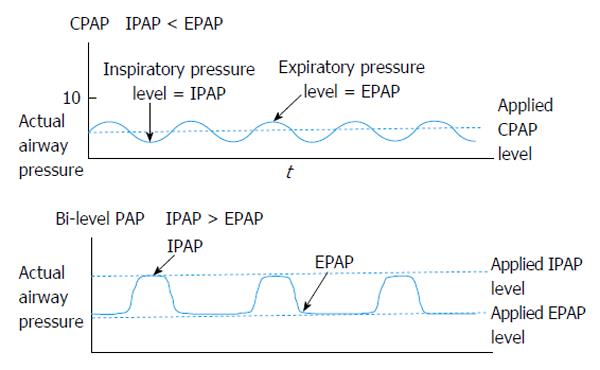Continuous airway positive pressure
Table of Contents
Table of Contents
Do you struggle with daytime fatigue despite getting a full night’s sleep? You’re not alone. Many people experience daytime fatigue as a result of sleep apnea, a condition that causes breathing interruptions during sleep. That’s where Continuous positive airway pressure therapy (CPAP) comes in. CPAP is a commonly used treatment for sleep apnea that can significantly improve symptoms of daytime fatigue and overall quality of life.
The Pain Points of Daytime Fatigue and Sleep Apnea
Sleep apnea is a common sleep disorder that affects millions of people worldwide. It’s characterized by breathing interruptions during sleep, which can cause a range of symptoms, including daytime fatigue, difficulty concentrating, and mood changes. If left untreated, sleep apnea can increase the risk of serious health problems, such as high blood pressure, heart disease, and stroke.
What is the Target of CPAP Therapy?
CPAP therapy is a non-invasive treatment that involves wearing a mask during sleep, which provides a continuous stream of air to keep the airway open. This ensures that you’re getting enough oxygen while you sleep and can reduce the frequency and severity of breathing interruptions. The result? Better sleep quality and a reduction in symptoms of sleep apnea, including daytime fatigue.
Main Points about CPAP Therapy and Daytime Fatigue
CPAP therapy is a highly effective treatment for sleep apnea and can significantly improve symptoms of daytime fatigue. It works by providing a continuous stream of air to keep the airway open during sleep, reducing the frequency and severity of breathing interruptions. This ensures that you’re getting enough oxygen while you sleep, leading to better sleep quality and overall health. If you’re struggling with daytime fatigue and other symptoms of sleep apnea, CPAP therapy may be an excellent option for you.
A Personal Experience with CPAP Therapy and Daytime Fatigue
Personally, I struggled with daytime fatigue for years before being diagnosed with sleep apnea. I started using a CPAP machine, and the difference in my energy levels was almost immediate. I no longer felt like I needed a nap in the middle of the day, and my concentration and mood improved. It took some time to get used to wearing the mask, but it’s been worth it for the improved quality of life.
 The Benefits of CPAP Therapy for Sleep Apnea
The Benefits of CPAP Therapy for Sleep Apnea
CPAP therapy has many benefits beyond improving daytime fatigue. It can reduce symptoms of sleep apnea, such as snoring, gasping for air, and restless sleep. CPAP therapy is also associated with lower blood pressure, which can reduce the risk of heart disease and stroke. Additionally, CPAP therapy has been shown to improve glucose control in people with diabetes and improve overall quality of life.
 ### How CPAP Therapy Works
### How CPAP Therapy Works
CPAP therapy works by creating a constant, gentle flow of air pressure that keeps the airway open during sleep. The air is delivered through a mask that fits over the nose and is held in place with straps. The mask and straps can be adjusted to ensure a comfortable and secure fit. CPAP machines come in various sizes and models, allowing for customization to meet individual needs and preferences.
 The Drawbacks of CPAP Therapy
The Drawbacks of CPAP Therapy
While CPAP therapy is highly effective, it’s not without its drawbacks. For some people, wearing a mask can be uncomfortable or make sleeping difficult. Additionally, the machines can be noisy, making it difficult for bed partners to sleep. Some people may also experience skin irritation from wearing the mask or dryness in the mouth or nose from the continuous flow of air.
 Question and Answer
Question and Answer
Q: Is CPAP therapy the only treatment for sleep apnea?
A: No, there are other treatment options for sleep apnea, including lifestyle modifications, oral appliances, and surgery. However, CPAP therapy is the most commonly used and effective treatment.
Q: How long does it take to adjust to using a CPAP machine?
A: It can take several weeks to adjust to using a CPAP machine, but most people find that the benefits are worth the initial discomfort.
Q: Can CPAP therapy be used for children with sleep apnea?
A: Yes, CPAP therapy can be used for children with sleep apnea, although adjustments may need to be made to ensure a comfortable and secure fit.
Q: Can CPAP therapy be used for people with severe sleep apnea?
A: Yes, CPAP therapy can be used for people with severe sleep apnea. In fact, it’s often the first-line treatment for severe cases, although some people may require additional treatments or therapies.
Conclusion of Continuous Positive Airway Pressure Therapy and Daytime Fatigue
If you’re struggling with daytime fatigue or other symptoms of sleep apnea, CPAP therapy may be an excellent treatment option for you. While it may take some time to adjust to using a CPAP machine, the benefits can be substantial and include improved sleep quality, reduced symptoms of sleep apnea, and improved overall health. Speak with your doctor to learn more about whether CPAP therapy is right for you.
Gallery
Continuous Positive Airway Pressure (CPAP) Devices Market

Photo Credit by: bing.com / pressure positive airway continuous cpap devices types market machine breathing bipap different insights premium press release
Continuous Positive Airway Pressure Therapy | Nursing Information

Photo Credit by: bing.com / pressure continuous positive airway therapy
Positive Airway Pressure Therapy For Heart Failure

Photo Credit by: bing.com / pressure airway positive continuous bi level therapy 1175 wjc heart failure v6 i11
What Is Continuous Positive Airway Pressure Therapy? | GenesisCare

Photo Credit by: bing.com / continuous airway positive pressure
Mechanism Of Action Of Continuous Positive Airway Pressure Therapy IV

Photo Credit by: bing.com / airway pressure positive continuous therapy iv


